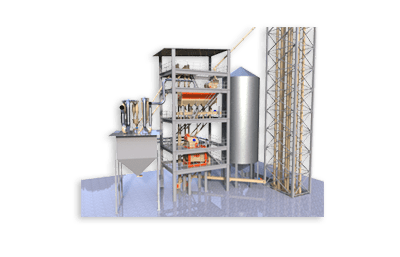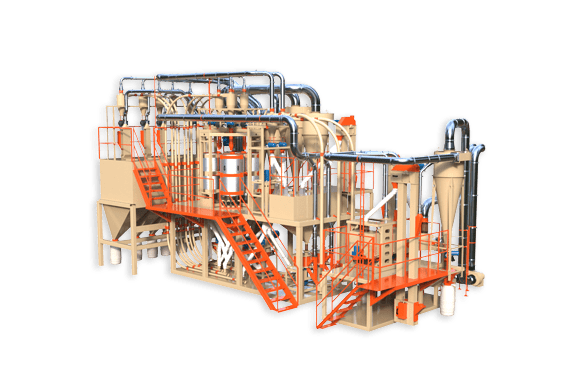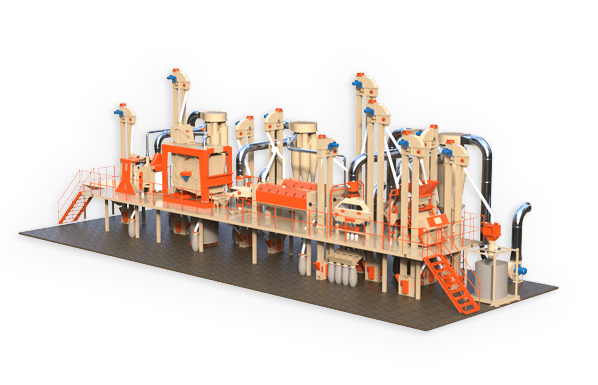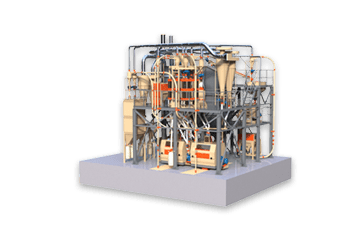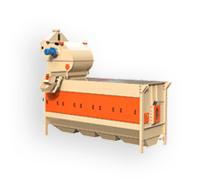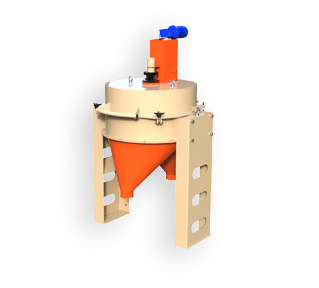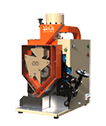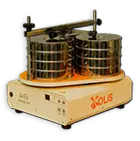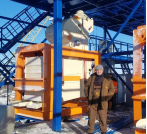
Some agro-industrial enterprises and holdings, having succeeded in grain production, are seeking to create or expand branches for its processing. Often their field of vision includes production of flour or cereals. Unfortunately, most managers who are mastering this new type of business are prone to mistakes in choosing effective means of its implementation, because grain processing is highly specific. Let’s try, without going into technological aspects, to clarify the basic organizational and technical approaches to creating a successful processing industry.
All the basic provisions formulated for mill production* are also valid for the production of cereals. The only exception is that when processing grain into cereal, grinding batches are not formed, and all incoming batches are processed separately, taking into account their individual characteristics. Differences in processing technology for individual types of grain determine the specialization of cereal production. Depending on the characteristics of technology and the rational use of modern equipment, there are the following cereal productions: universal; for the production of corn grits for food concentrates; for processing buckwheat, oats; for the production of grain flakes.
Technologies for wheat, barley, pearl barley and pea cereals have many common technological operations performed on identical machines. As a rule, such technologies are combined into single production facilities, called universal ones. The transfer of equipment from the production of one type of cereal to another is carried out when it is completely stopped by cleaning it, replacing the working parts of some machines and changing the routes of movement of a number of products. Depending on the production capacity, such a restructuring takes from several tens of minutes to one work shift.
Universal production facilities are often created with the ability to process millet into millet and corn into cereal, crushed without selecting the germ. Universal production combines relatively simple technologies, so their implementation, even at low productivity, carried out on small-sized equipment, is highly efficient.
Most food concentrates are made from corn grits and flour. Recently, corn grits have also been used in the production of beer, but for this purpose, the grits produced with the selection of the germ and the flour obtained from it are suitable. The technology for the production of such cereals includes quite complex, branched enrichment processes, which are effectively implemented only on industrial equipment. It is advisable to create such a technological scheme when the grain productivity of the enterprise is 50-60 tons/day.
Processing buckwheat into kernels and oats into oatmeal also requires highly specialized technologies, since the main technological elements and equipment are individual for each technology. The efficiency of processing buckwheat and oats is achieved only on industrial equipment, with a minimum productivity of enterprises of 30 tons/day. Numerous attempts to implement these technologies in mini-productions have proven unsuccessful.
Technological lines for the production of grain flakes are usually included in the cereal production processes discussed above as the final stage of processing.Such lines make it possible to produce flakes from different crops using the same set of equipment, but in practice the production structure of these products is dominated by the production of oat flakes.
It should be noted that the processing of buckwheat, oats and the production of flakes involve the need to use steaming and drying processes that require significant amounts of thermal energy. Therefore, in such industries it is advisable to build a steam boiler house that can generate steam by burning buckwheat and oat husks.
The development trends of domestic grain processing are limited to the domestic market for the sale of finished products. It is absolutely clear that in the future the processing industry will be limited to 20-30 national-scale industries supported by the state or large consumers. At the same time, many regional-level production facilities with a productivity of up to 100 tons per day will remain, significantly exceeding the first group of enterprises in terms of total processing volumes.
From the point of view of economic efficiency, it is advisable to organize grain processing closer to the places of its production, where space rent is also lower and labor is cheaper. As a rule, such production is aimed at not very distant urban consumers. Taking into account the constant increase in transportation costs, these trends will worsen.
The creation of efficient and profitable processing industries, taking into account the level of their technical complexity and capital intensity, is quite accessible to both individual agro-industrial enterprises or holdings, and regional business as a whole. Therefore, the task of the overwhelming number of processing enterprises will be regional leadership, ensured by further expansion of the product sales market through the creation of the following production facilities: pasta, bakery, production of food concentrates, production of instant products, etc.The organizational and technical level of such enterprises must ensure strict minimization of raw material and energy costs, maneuvering within several “strong” assortment positions, timely response to changes in demand and rapid filling of new product categories.
Grain processing facilities are complex engineering structures and must be created according to pre-developed designs. The level of technical problems solved in the process of creating production is much higher than the level of competence of even the most highly qualified “operators”. Such work can be done by specialists who have a deep knowledge of the necessary complex of knowledge, where technologies for the production of flour, cereals and flakes occupy a central place.
The activities of OLIS LLC are based on the development of technologies and the production of equipment for grain processing. The research and engineering personnel of our enterprise have a special basic education (including academic degrees) in the technology of flour, cereals and other specialties taught at the Odessa Technological Institute of Food Industry named after. M.V. Lomonosov. Some of our employees began their careers in research teams and at enterprises of the former bakery products system. Today they have significant industry-level research and production experience. Young employees have already taken their first practical steps in our company. They are distinguished by their democracy in the choice of means to solve technical problems and the constant need to revise traditional approaches. The core of our design team and production personnel are former machine tool builders, whose high professionalism is known far beyond Odessa.
* See article in 4/2011, p.50
Published based on materials
“Bread products” monthly
theoretical and scientific-practical journal
5/2011, pp. 38-39


